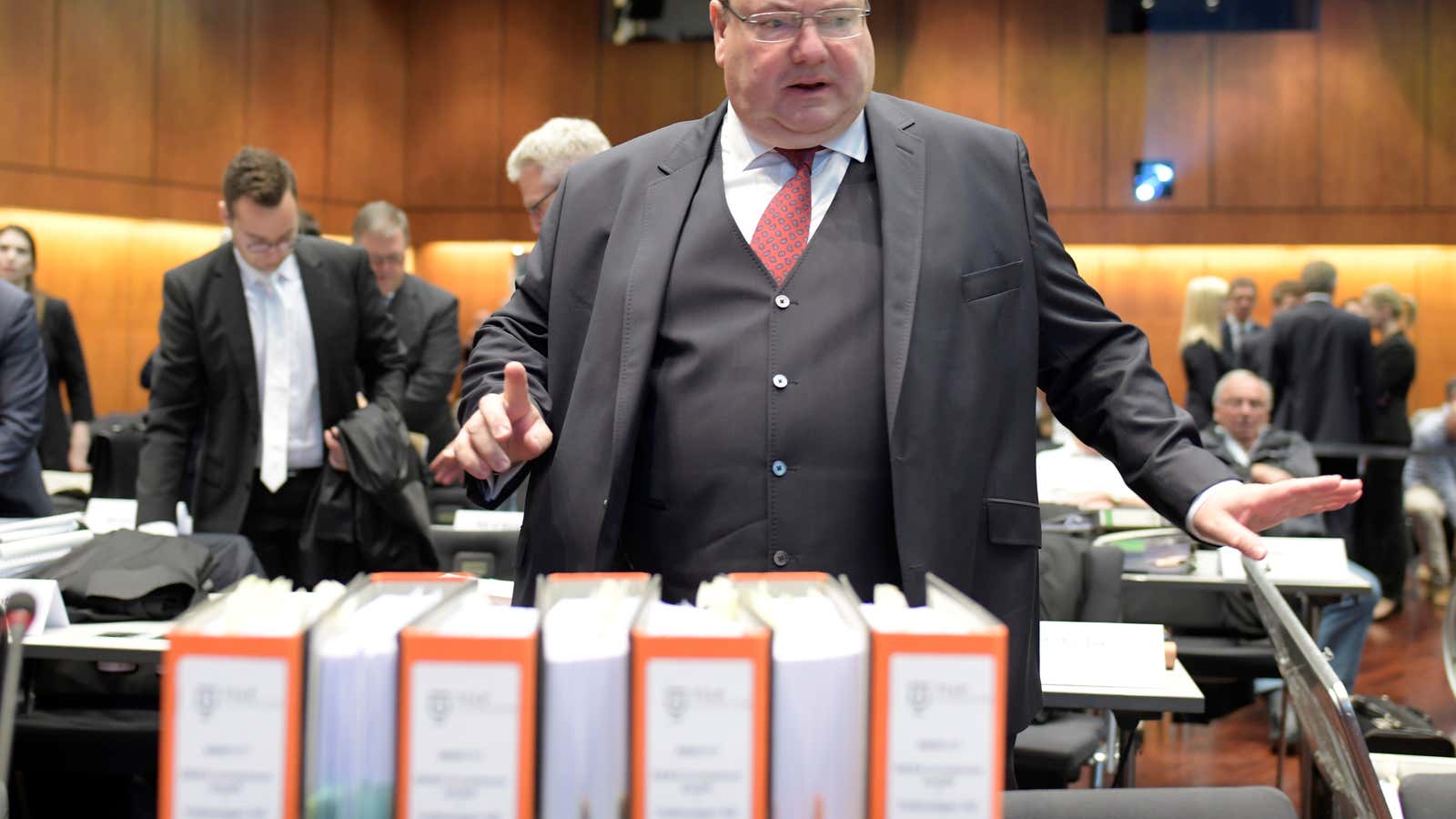Volkswagen’s emissions scandal (paywall) has already cost the auto maker billions in fines and penalties over the past three years. And the punishment isn’t over yet. A group of shareholders is going up against VW with a suit that could cost the company €9 billion ($10.5 billion) in damages.
The trial began in Braunschweig, Germany today (Sept. 10). The suit, brought mainly by institutional investors and led by Deka Investment, argues that VW knew about the emissions scandal and failed to warn shareholders in enough time to avoid the financial fallout. The carmaker’s stock price crashed in September 2015, falling by up to 37% in the days after the news broke. The shareholders, representing 1,670 claims, are demanding to be compensated for their losses.
The world first found out that Volkswagen had been manipulating emissions testing on Sept. 18, 2015, when the US Environmental Protection Agency issued its “notice of violation” and blew open what turned out to be years of rigged tests on diesel cars.
The Braunschweig state prosecutor slapped a €1 billion fine on VW in June of this year for “breaches of supervision in its engine development department”—a failure that led to almost 11 million diesel cars fitted with emissions-cheating software.
VW has paid out over $14 billion to affected customers in the US, but this is the first big trial in Germany so far.
“VW should have told the market that they cheated and generated risk worth billions,” lawyer Andreas Tilp, who leads Deka’s legal team, said. “We believe that VW should have told the market no later than June 2008 that they could not make the technology that they needed in the United States.”
In its defense document, the German carmaker said that its board members didn’t break disclosure rules, and had given stockholders sufficient information based on what the board knew at the time. It also noted that the EPA had never before fined carmakers more than $100 million for emissions cheating offenses. The EPA fined VW $4.3 billion.
Until recently, German law didn’t permit the kind of class-action suits that are common in the US. That changed earlier this year, but would-be plaintiffs only have until the end of the year to act. “Time is short,” justice minister Katarina Barley told RedaktionsNetzwerk (link in German) in May. “We must ensure the victims of the VW diesel scandal don’t lose their claims due to the statute of limitations.”
